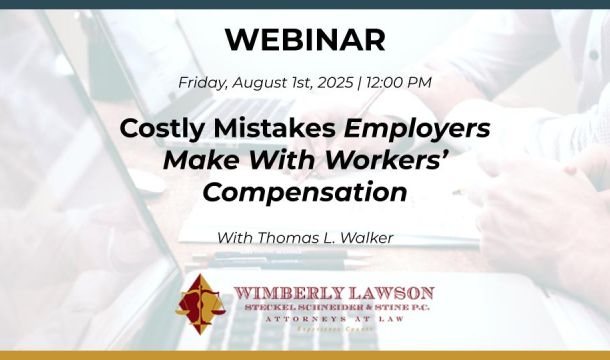The EEOC Frowns on Stereotyping of Older Applicants
A parking management company in Atlanta is facing a discrimination lawsuit filed by the EEOC because an operations manager told a 60-year-old female applicant for a valet job that she would not be successful as a valet because of the "physicality of the job." Instead, the operations manager told applicant, Valerie Hayden, that she would be perfect for a customer service position and told her to come back the following week to attend orientation.
Then the company made things even worse: the day before she was scheduled to begin her new position, Hayden called to ask what time she should report. However, the operations manager told Hayden that the job had already been filled. The company's records show that after Hayden was interviewed, it hired several male valets and customer service employees who were substantially younger than Hayden. After this kind of treatment, it is not surprising that Hayden went to the EEOC and filed a charge of discrimination.
The EEOC's lawsuit asserts that this alleged conduct violates Title VII of the Civil Rights Act and the Age Discrimination in Employment Act (ADEA). In the press release issued by the EEOC, Antonette Sewell, regional attorney for the Atlanta District Office, stated, "What is most disturbing about this case is that the hiring official automatically assumed that Ms. Hayden was not qualified to work as a valet or customer service parking manager because of her age and the fact that she is a woman. Such managerial behavior is not legal or acceptable in the 21st century."
Do not make assumptions about a job applicant's physical ability to perform a job based solely on age or gender. Consider this: Diana Nyad swam from Cuba to Florida at the age of 64. 92-year-old Harriette Thompson completed the San Diego Rock 'N Roll Marathon in 2015 (and became the oldest person to complete a half-marathon 2 years later).
Pro tip: During the job interview process, an employer can ask an applicant if he/she is able to perform the essential functions of the job. Once a conditional job offer is made, the employer may ask more detailed questions about abilities and disabilities and require medical examinations as long as this is done for all entering employees in that job category.

Kathleen J. Jennings is a former principal in the Atlanta office of Wimberly, Lawson, Steckel, Schneider, & Stine, P.C. She defends employers in employment matters, such as sexual harassment, discrimination, Wage and Hour, OSHA, restrictive covenants, and other employment litigation and provides training and counseling to employers in employment matters.
Related Content
Get Email Updates
Recent Content

How to Audit Employment Discrimination Laws Compliance

TPS Update (As of 6/17/2025)

TPS Designation for Honduras and Nicaragua Automatically Extended, But the Date is Uncertain

President Trump Discourages Criminal Enforcement of Agency Rules

Supreme Court Suggests Trump Can Fire Agency Heads without Cause
